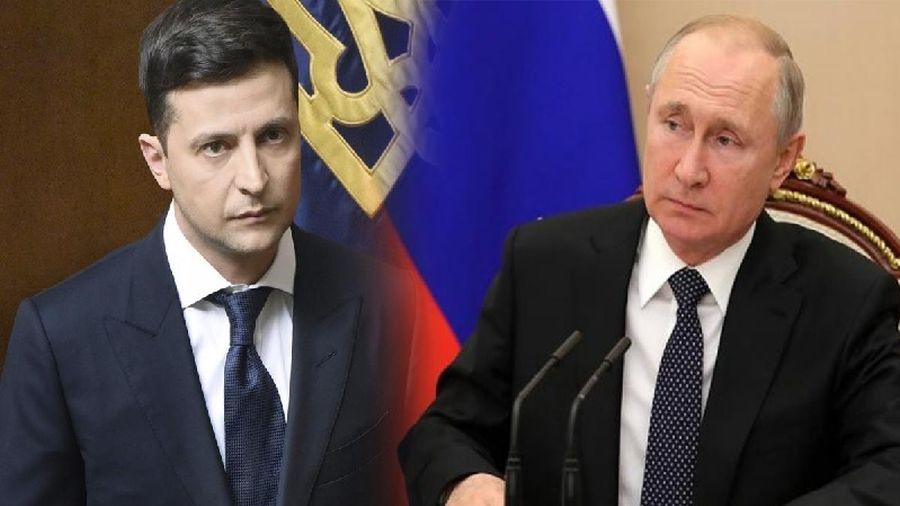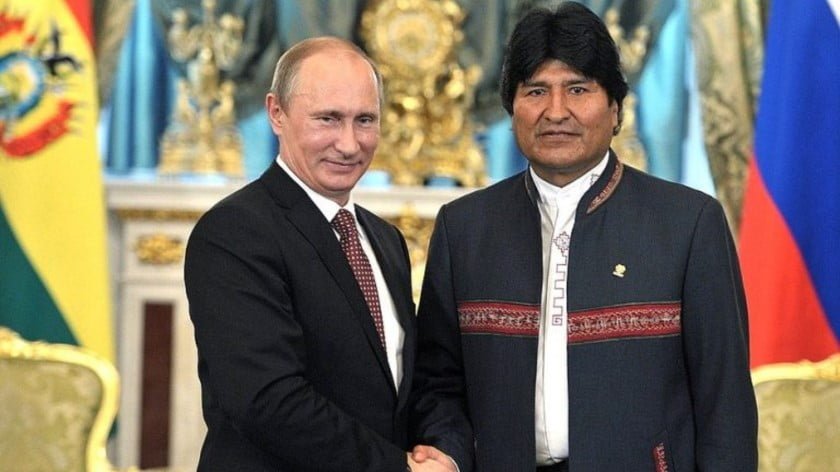It’s Extremely Unlikely That Russia Will Militarily Intervene in Ukraine
Observers should acknowledge the shortcomings inherent in both the Alt-Media and Mainstream Media’s latest near-identical predictions about Russia supposedly preparing for an imminent military intervention in Ukraine.
There’s been a lot of chatter lately about the possibility of Russia militarily intervening in Ukraine sometime in the near future. The Saker, a celebrated Alt-Media analyst, published a piece in late October about “Why I See A War In The Donbass As (Almost) Inevitable”. This was followed by NATO’s warnings to a similar effect, most recently earlier this week by Secretary-General Stoltenberg. It was predictable that Moscow would deny the veracity of these predictions, but what caught many observers off guard was Kiev doing the same.
A spokesman for Ukraine’s State Border Service said on Monday that “We are not registering any movement of materiel or troops of the neighboring country right at the border. If some actions are taking place, they can be unfolding tens or hundreds of kilometers away from the state border.” This throws a wrench in both the Mainstream Media and Alt-Media predictions. Quite clearly, if even Ukraine itself isn’t going along with its Western ally’s predictions, then objective observers can confidently ascertain that there isn’t any reason to expect a Russian military intervention anytime in the near future.
Each side’s predictions are predicated on completely different motivations and worldviews. The Alt-Media Community (AMC) has been practically praying for a full-on Russian “invasion” of Ukraine for years already in order to liberate Donbass (following which they expect the region to unite with Russia) and depose the country’s post-Maidan ethno-fascist authorities. The Mainstream Media, meanwhile, might not have ever seriously thought that this would happen but derives political benefit from regularly fearmongering about it since this serves to justify a more muscular NATO buildup in the region.
Russia evidently has no interest in doing this except as a last resort in the most extreme circumstances for self-defense. Moscow strictly adheres to the Minsk Accords and thus regards Donbass as an integral part of neighboring Ukraine, albeit one which must be afforded autonomy. While it detests Kiev’s ethno-fascist authorities, the Kremlin has learned to live with them and isn’t plotting any military-driven regime change attempt in the Ukrainian capital. The Eurasian Great Power is also aware of how false perceptions of its intentions are exploited by the MSM and especially NATO.
These assessments should have been common knowledge among astute observers though some in the AMC continue to view the situation through the perspective of wishful thinking due to how passionately they feel about the issue, which is understandable. The MSM, however, cannot be excused for inventing so-called “impending Russian invasions” out of thin air. What’s less clear, however, is why Ukraine didn’t go along with the West’s narrative this time along. One possible explanation is that it wants to signal displeasure with the incipient effort between Russia and the US to regulate their rivalry.
Ukraine, like Poland, believes that it’s being abandoned by Biden in pursuit of the US’ grand strategic goals in the New Cold War that those two countries regard as being at their expense. They’re particularly concerned by Washington waiving most Nord Stream II sanctions earlier this summer. In response, Warsaw is seeking to exploit the Eastern European Migrant Crisis in order to provoke a larger East-West crisis that it can subsequently leverage to sabotage this process while Kiev for once decided not to support its Western allies’ anti-Russian fearmongering.
This interpretation of events shouldn’t be regarded as implying that Ukraine intends to improve its relations with Russia. Rather, it should simply be seen for what it is, a convenient attempt to signal displeasure with the US which entails no actual costs for Kiev. Nevertheless, this move inadvertently cast wider suspicion on the veracity of such regular Western narratives since this is the first time that one can recall in which Ukraine very politely implied that these claims are a lie. It might very well go along with this fearmongering in the future, but for now, it chose to not for the explained reason.
There are several lessons connected to all of this. First, sometimes both the Alt-Media and MSM make the same prediction though for different reasons. Second, it’s possible for both of them to be wrong. Third, wishful thinking (Alt-Media) and strategic weaponization of false narratives (MSM) are the most likely causes in each respective case. Fourth, despite being disproportionately influenced by its foreign patrons, post-Maidan Kiev isn’t completely a Western puppet otherwise it would have gone along with the latest claims. And fifth, Ukraine’s relations with the West are presently troubled.
In conclusion, observers should acknowledge the shortcomings inherent in both the Alt-Media and MSM’s latest near-identical predictions about Russia supposedly preparing for an imminent military intervention in Ukraine. They should also pay attention to any other potential means through which Ukraine might signal displeasure with its Western patrons since this trend is more worthy of analysis than anything else at the moment. It reveals that existing models about the conflict need to be updated in order to account for that unexpected development.







